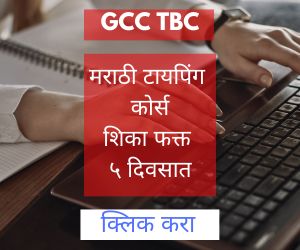In this article, we discuss the communal award and Poona pact in 1932.
The Muslim people had demanded from the British government that the Muslims were less than the Hindus, that's why they should get a separate electorate in some Muslim majority areas.
A separate electorate means if 10 people live in an area and 5 or more than 5 of them belong to the Muslim community so only Muslims will stand in the elections of this area and only Muslim people will have the right to vote.
The British government accepted this demand of the Muslim League in the Government of India Act 1909.
After this, other communities also started demanding a separate electorate. The British government accepted their demand and Sikhs, Indian Christians, Anglo Indians, and Europeans were also given separate electorates in the Government of India Act 1919.
It was also said in the Government of India Act 1919 that a commission would be made after 10 years of this act which will examine the progress and implications of this act and will also give suggestions.
Only 7 years after the Government of India Act 1919, the Secretary of State Lord Birkenhead made the commission. The name of that commission was Simon Commission.
Dr. B.R.Ambedkar demanded from the Simon Commission a separate electorate for depressed classes.
All major parties including Congress and Muslim League were opposing the Simon Commission. Because all the leaders in the Simon Commission were British.
In May 1930 the Simon Commission published its report. To discuss these reports, the British government held 3 round table conferences.
In the second round table conference, leaders of all communities were demanding a separate electorate but Gandhiji was demanding to make a fully responsible government in India.
At the end of the second round table conference, British Prime Minister and Chairman of Round Table Conference Ramsay MacDonald made the two major announcements.
The first announcement was that two new Muslim Majority Provinces would be created in British India.
In the second announcement, Ramsay Macdonald said that Indians should solve the issue of minorities, if it does not resolve, then we will solve it through the Communal Award.
Gandhiji was very disappointed with what happened at this conference. Gandhiji returned to India on 28 December 1931. As soon as it came, Congress decided that the Civil Disobedience Movement would be started again.
But Viceroy Lord Wellington put Gandhiji and all the big leaders in jail on 4th January 1932, before the movement started. Gandhiji was kept in Yerwada Jail in Pune.
On 16 August 1932, Ramsay Macdonald made some announcements in the British Parliament. This announcement was about the representation of Indian minorities.
This announcement is also called the Communal Award or the McDonald Award.
The first announcement was that the seats of the Provincial Legislature would be doubled.
In the second announcement, separate electorates were given to Muslims, Sikhs, Christians, Anglo-Indians, Europeans, and Depressed Classes.
The demand made by Dr. B. R. Ambedkar from the British government was accepted through the Communal Award.
Gandhiji raised a strong objection to the Communal Award, especially on the issue of giving a separate electorate to the depressed classes.
Gandhiji started an indefinite fast in the Yerwada Jail in Poona on 20 September 1942. Gandhiji said that he would fast until the separate electorate of depressed classes was removed.
The British government said that we gave a separate electorate to the depressed classes because their leader had demanded.
The British government also said that if you have any objection, then you can talk with Dr. B. R. Ambedkar.
Gandhiji's health was deteriorating day by day due to the fast. Therefore, big leaders of Congress like Madan Mohan Malviya, Tej Bahadur Sapru, and C Rajagopalachari went to Dr. Ambedkar to withdraw their request.
Due to the pressure of Gandhiji's followers, some negotiations took place between Dr. Ambedkar and Gandhiji, and in 1932 the Poona Pact was signed.
In the Communal Award, 71 seats were reserved for the Depressed Classes in the provincial assemblies.
The candidates of the depressed classes on these seats were to be selected by the separate electorate. With this, he could also participate in the elections of General Constituency.
It was also said in the Communal Award that the depressed classes have been given separate electorates and reservations, they will be valid for 25 years.
The number of 71 reserved seats in the Poona Pact was increased to 148 and they could also contest elections from General Constituency.
On these 148 seats, only people of depressed classes could contest elections and these elections were going to be done through the joint electorate.
A joint electorate means that people of different communities live in an electoral constituency and that the electoral area is reserved for Depressed Classes, so in that election session only people of depressed classes will be able to stand but everyone will have the right to vote.
The reservation given to the Depressed Classes in the Poona Pact was only for 10 years unless it is terminated through any mutual agreement.
According to the agreement of Poona Pact, 30 seats in Madras, 15 seats in Bombay and Sindh, 8 seats in Punjab, 18 seats in Bihar and Orissa, 20 seats in Central Province, 7 seats in Assam, 30 seats in Bengal, and 20 seats in United province are reserved.
In the elections of the Joint Electorate, first of all, 4 candidates of Depressed Classes were to be selected through Primary Elections, in which only peoples of Depressed Classes can vote.
Then those 4 candidates will again have secondary elections and in these elections, all the people of that constitution will vote.
Apart from this, 19% of seats were reserved for Depressed Classes in the Central Legislative Assembly. These elections were also to be done through the Joint Electorate.
The British government had also accepted this agreement of the Poona Pact.
Gandhiji took retirement from active politics after the Poona Pact and started the All India Untouchability League in 1932 from jail itself, whose aim was to remove Untouchability in India.
If you like this article about Communal Award and Poona Pact, consider sharing this article with friends.








